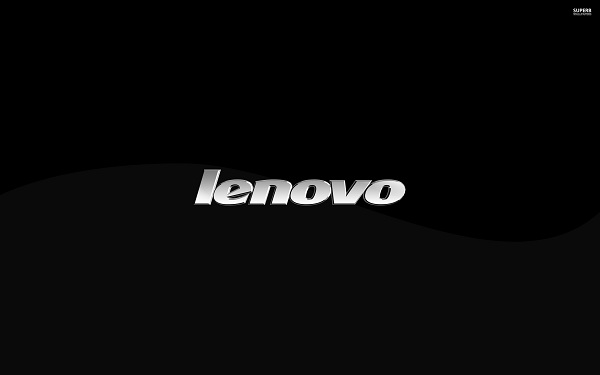
by Editor | May 25, 2021 | Business, Large Enterprise, Markets, Technology
 New Delhi : While 2017 witnessed debates around disruptive technologies like Artificial Intelligence (AI) and Internet of Things (IoT), 2018 will see these conversations materialise into concrete steps and existing technologies experience a make-over, a top Lenovo India executive said on Sunday.
New Delhi : While 2017 witnessed debates around disruptive technologies like Artificial Intelligence (AI) and Internet of Things (IoT), 2018 will see these conversations materialise into concrete steps and existing technologies experience a make-over, a top Lenovo India executive said on Sunday.
“Artificial Intelligence (AI) and chatbots are becoming increasingly important and are something that brands and companies worldwide will use to enhance customer experience,” Rajesh Thadani, Executive Director and Head, Consumer Business and E-commerce, Lenovo India, told IANS.
AI capabilities have been made possible by the massive proliferation of data and computing power.
“We will see AI inspire how products are designed and the technology will be infused in the products for customer’s benefits this year,” Thadani added.
According to Nielsen’s data, by 2030, 1.2 billion Indians are expected to own a smartphone, increasing internet penetration almost 4.5 times where 90 per cent of the content consumption will be through mobile devices.
“Millennials and urban Indians will expect nothing less than intuitive, high-performance yet aesthetically pleasing devices that deliver experiences beyond the user interface — be it for work or play,” the Lenovo executive said.
According to Lenovo, the companies will offer productivity on the go without compromising on aesthetic, smart devices already delivering the multi-sensory PC and tablet experience, especially through devices that deliver the value that go beyond the traditional form factor.
The advent of smart assistants and rapid adoption of IoT has opened the door to many opportunities for greater integration between devices.
“The industry is pointing towards the inevitable smart home, fitted with technologies that will enable users to conduct web searches, play music, create lists and provide calendar updates with just a simple voice command,” Thadani added.
—IANS

by Editor | May 25, 2021 | Corporate, Corporate Buzz, Markets, Technology
 New Delhi : Various technologies at Microsoft that began transforming the lives of individuals and communities in India last year will gain further momentum in 2018, the company’s President Anant Maheshwari said on Tuesday.
New Delhi : Various technologies at Microsoft that began transforming the lives of individuals and communities in India last year will gain further momentum in 2018, the company’s President Anant Maheshwari said on Tuesday.
In a mission statement, Maheshwari said he is proud to play a role in the transformation of India’s core pillars of education, health care, agriculture and governance, among others.
Today, about 25 per cent students drop out from grade 10 to grade 11.
“We have partnered with Andhra Pradesh government to see how machine learning can help educators foresee signs of a student being on the risk of dropping out and take preventive action. In 2017, the government expanded the rollout of the programme to all 13 districts in the state,” Maheshwari said.
Microsoft has also initiated “Project Sangam” that aims to upskill the workforce to prepare it for jobs that exist now and in the future.
“The learning modules are hosted on the Cloud and are coupled with the power of LinkedIn to enable candidates to find jobs,” he said.
Along with the International Crop Research Institute for the Semi-Arid Tropics (ICRISAT), Microsoft is using machine learning and historic weather data to predict the best time for sowing seeds and other stages of the farming process and pass on that information to farmers via SMS.
“In 2017, we not only increased the pilot to more farmers across additional states like Telangana, Maharashtra and Madhya Pradesh, but also expanded the crops for which we can provide predictive information and saw increase in crop yields ranging from 10 per cent to 30 per cent,” Maheshwari informed.
Researchers at Microsoft India are also working on a project which uses low-cost ground-based sensors and aerial photography, along with data analysis systems that can provide even better predictive analysis for individual fields.
When it comes to health care, Telangana government is using Microsoft’s Cloud-based advanced analytics solution to screen children from birth to 18 years of age for major conditions affecting the health of children in the state.
“One of the insights from the screenings indicated that visual impairment was among the most prevalent health issues among children. This led Telangana government to adopt Microsoft Intelligent Network for Eyecare (MINE), which was developed in partnership with LV Prasad Eye Institute,” Maheshwari said.
MINE uses machine learning and advanced analytics to predict regression rates for eye operations, enabling doctors to pinpoint the procedures needed to prevent and treat visual impairments.
While the rest of the world might be talking about self-driving cars, researchers at Microsoft India have devised ways on how low-cost tech can make drivers drive better.
“Project ‘HAMS’ uses a smartphone as an intelligent edge device that can track multiple events such as driver distraction, fatigue and gaze tracking, as well as vehicle ranging, which determines whether a safe separation distance is being maintained with the vehicles in front,” he added.
Researchers are now looking at Bollywood movie scripts to figure out how bots of the future will be able to understand how humans mix languages in a conversation.
“We are also breaking language barriers by adding more Indian languages in Microsoft Translator,” Maheshwari said.
—IANS

by Editor | May 25, 2021 | Markets, Muslim World, Technology
 Tehran : Samsung along with the Irania government is training several experts to achieve state-of-art technologies, a national daily reported on Saturday.
Tehran : Samsung along with the Irania government is training several experts to achieve state-of-art technologies, a national daily reported on Saturday.
Samsung has set up an engineering academy in Iran and some 7,200 youth have been trained at the centre of which 1,400 have entered the job market after receiving a certificate of skill from Samsung, Xinhua cited Financial Tribune as saying.
The company will also convene the third Iranian Electrical Technicians Olympiad in collaboration with Iran Technical and Vocational Training Organization (TVTO) from December 15-22.
The competition would focus on the repair of cellphones, tablets, home appliances, air-conditioning units and multimedia devices.
According to the report, the South Korean electronics company’s local sales manager said that “the event seeks to introduce skilled Iranian technicians to employers.”
Close to 1,700 people participated in the previous round of the competition in January 2016.
—IANS

by Editor | May 25, 2021 | Markets, News, Technology
 New Delhi : Sensing the need to skill the Indian talent for emerging technologies, Google, in association with technology learning platform Pluralsight and educational institution Udacity, on Thursday announced a new scholarship programme that will help train 1.3 lakh developers and students across the country.
New Delhi : Sensing the need to skill the Indian talent for emerging technologies, Google, in association with technology learning platform Pluralsight and educational institution Udacity, on Thursday announced a new scholarship programme that will help train 1.3 lakh developers and students across the country.
As part of the programme, Google will fund 100,000 scholarships on the Pluralsight technology learning platform and 30,000 scholarships on Udacity platform.
The scholarship would enable students gain access to advanced learning curriculum and further their employability in mobile and web development, machine learning, augmented and virtual reality, Artificial Intelligence (AI) and Cloud platforms.
“The new scholarship programme is in tandem with Google’s aim to train two million developers in India. The country is the second largest developer ecosystem in the world and is bound to overtake the US by 2021,” William Florance, Developer Products Group and Skilling Lead for India, Google, told reporters here.
In 2015, Google CEO Sundar Pichai had stated that the global Internet search engine giant will train 2 million new android developers in the next three years in India.
“In the last one year, we have engaged over half a million students and developers across India through a variety of programmes and initiatives. Since we announced our skilling initiative in India, 210,000 students have completed Google developed courses on Udacity, with 117,000 students completing the course this year,” Florance informed.
With Udacity, 1,000 developers will also be selected to receive full Nanodegree scholarships.
“Unlike China, India is lagging in innovation but is adopting technologies faster. There is an urgent need to upskill and reskill India’s technology workforce,” Florance said.
According to Arun Rajamani, Country Head and General Manager, Pluralsight, India’s tech workforce is going through a phase of transition.
“We are thrilled to partner with Google to help developers across India understand their skill level using Pluralsight IQ and advance their skill sets in four key roles: Android Developer, Mobile Web Specialist, Cloud Architect and Data Engineer,” Rajamani said.
“With this scholarship programme, students can master web and mobile development skills with the experts from Udacity and Google,” added Ishan Gupta, Managing Director-Udacity India.
—IANS

by Editor | May 25, 2021 | Corporate, Corporate Governance, Markets, News, Politics, Technology

Dharmendra Pradhan
New Delhi : India cannot afford to ignore the challenges of new technologies like artificial intelligence (AI) and automation, and miss out on Industrial Revolution 4.0, Skill Development Minister Dharmendra Pradhan said on Friday.
“We had lost out on the opportunities created by the Industrial Revolution because of colonialism, as Prime Minister Narendra Modi has pointed out… and that we cannot afford to miss out on Industrial Revolution 4.0,” Pradhan said.
The Minister was addressing the 10th Global Skills Summit here organised by industry chamber Ficci. “We cannot ignore the challenges of technologies of the future like artificial intelligence and automation.”
“Our responsibility is to speed up the creation of an ecosystem in which all the workforce being added to the country every year gets a dignified life through a collective effort of all stakeholders,” he added.
Noting from his experience in India how technology is no longer a “high-end” product and has been adopted by the common people, the Minister said the National Sample Survey Office (NSSO) data did not properly reflect the level of skilling in the country.
“India has 50 crore people in the notified employable age of 15-59 years. Of this, the skilled manpower is just 10 per cent as against 50-90 per cent skilled manpower in the robust urban economies like Germany,” Pradhan said.
“It is not that just 10 per cent of India’s population is skilled. The biggest challenge is to put our records straight on the table,” he added.
In this connection, he recalled the marvellous architectural, engineering and technical skills of ancient India as seen in temple construction, for instance, that had spread to distant parts like Southeast Asia.
—IANS

 New Delhi : While 2017 witnessed debates around disruptive technologies like Artificial Intelligence (AI) and Internet of Things (IoT), 2018 will see these conversations materialise into concrete steps and existing technologies experience a make-over, a top Lenovo India executive said on Sunday.
New Delhi : While 2017 witnessed debates around disruptive technologies like Artificial Intelligence (AI) and Internet of Things (IoT), 2018 will see these conversations materialise into concrete steps and existing technologies experience a make-over, a top Lenovo India executive said on Sunday.



